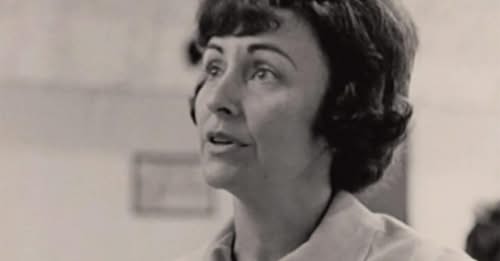Remembering Julie Moore: The Army Spouse Who Helped Change Military Protocol and Brought Humanity to War
Published: May 25, 2025
Julie Moore never wore a uniform, never held rank, and never stepped onto a battlefield. Yet her impact on the United States military was profound, reshaping the way the Army treated its most solemn duty—delivering news of a soldier’s death to their family.
Known to many as the devoted wife of Lieutenant General Hal Moore—commander of U.S. forces in the historic and harrowing Battle of Ia Drang during the Vietnam War—Julie Moore emerged as a quiet revolutionary within the Army’s culture. She was more than a military spouse; she was an advocate, a mother, and a pillar of strength who refused to accept the inhumane policies once practiced by the military during times of loss.
As the nation reflects on her legacy, especially during Memorial Day remembrances, the story of Julie Moore stands as a powerful reminder of how compassion and courage can drive institutional change—even from outside the chain of command.
A Frontline on the Home Front
Julie Compton Moore was born on February 10, 1929, in Texas. She married Hal Moore in 1949, and over the years, the couple had five children. As a military wife, Julie moved frequently—repeatedly uprooting her life to follow her husband’s assignments across the globe. But her most defining chapter began in 1965, when Hal Moore deployed to Vietnam and took command of the 1st Battalion, 7th Cavalry Regiment.
During that time, the Army had a chillingly impersonal method of notifying families of soldiers killed in action: telegrams delivered by taxi drivers. There were no military personnel present to offer context or comfort—just a folded slip of paper handed over the threshold, shattering lives in silence.
Julie Moore witnessed this firsthand at Fort Benning, Georgia. As the Battle of Ia Drang raged in November 1965—the first major conflict between U.S. troops and North Vietnamese forces—telegrams began arriving in the neighborhood, delivered by cab drivers who were as confused as the grieving wives they confronted.
Julie could not stand by.
Taking a Stand with Compassion
Rather than allow the families around her to grieve alone, Julie Moore began accompanying the telegram deliveries. She knocked on doors, offered comfort, and held crying widows. She stayed until someone else arrived. She made phone calls, helped with funeral arrangements, and consoled the children left behind.
Julie became a lifeline to the wives of fallen soldiers, representing what a human response should look like in the face of tragedy. Her empathy and insistence that the Army could—and should—do better became a moral reckoning for military leadership.
Her actions caught the attention of senior commanders and military officials. Before long, the Army changed its protocol. No longer would a lone civilian deliver death notifications. The military implemented a policy requiring that at least one uniformed officer and a chaplain personally deliver the news to next of kin, offering support and staying with the family for as long as needed.
Julie Moore had changed Army protocol—not with authority, but with unwavering compassion and humanity.
Beyond Vietnam: A Lifetime of Quiet Service
Even after the war, Julie Moore’s legacy continued through the lives she touched. She remained an active supporter of military families and veterans, using her voice to promote dignity, respect, and community among service members and their loved ones.
She was also instrumental in preserving the history of the Battle of Ia Drang. Her story, and that of her husband Hal, was immortalized in the book We Were Soldiers Once… and Young by Lt. Gen. Harold G. Moore and journalist Joseph L. Galloway. Later, Julie Moore was portrayed by actress Madeleine Stowe in the 2002 film adaptation We Were Soldiers, starring Mel Gibson as Hal Moore. The film showed not only the chaos of war but the grief that echoed at home—and the strength of one woman who faced it head-on.
A Lasting Legacy
Julie Moore passed away in 2004, but her spirit remains deeply embedded in the Army community. In 2015, Fort Benning honored her legacy by naming a road “Julie Moore Drive”—a testament to the enduring impact she made on the base and in the military’s heart.
To this day, Army casualty notification teams undergo specialized training in grief and compassion, thanks in part to the awareness Julie Moore raised through her actions.
Her life is a testament to the power of empathy and the difference one person can make—even without a title or official authority. In an era when protocols were cold and compassion was optional, Julie Moore made it mandatory. She changed not only the rules but the soul of the Army’s response to tragedy.
As we pause to remember the fallen this Memorial Day, we also honor those like Julie Moore—who stood beside them, behind them, and for them, even when no one asked her to. Her name may not be etched on a memorial wall, but her legacy is carried in every respectful knock on a family’s door and every tear shed with them.
In remembering Julie Moore, we remember that real heroism can be found not just on the battlefield, but in the quiet dignity of compassion, service, and love.

